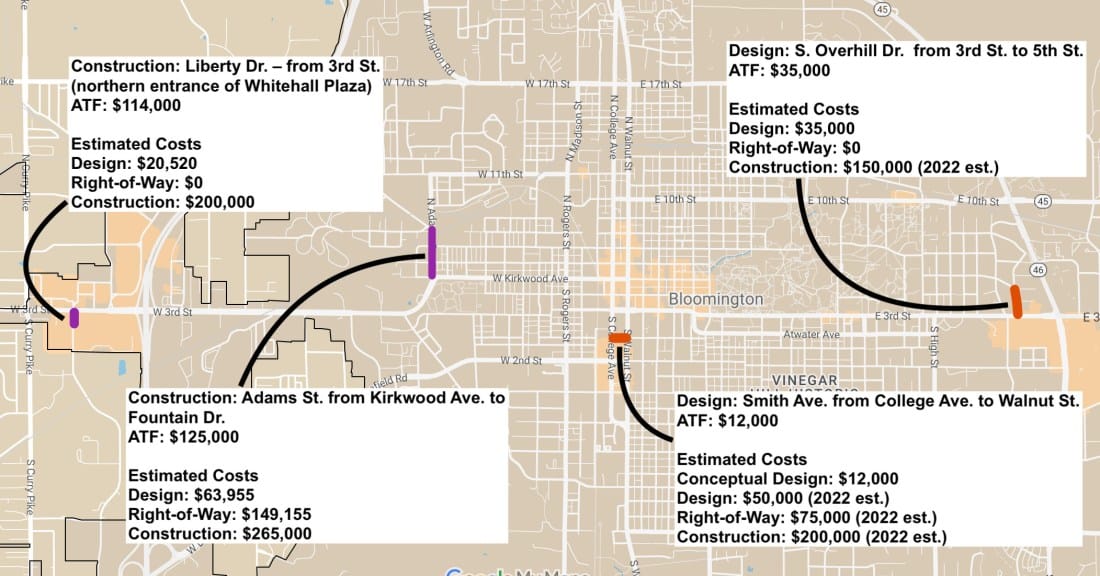Bloomington city council notes: New sidewalks OK’d, but Kirkwood closure, parklets delayed for 2 weeks


Two sidewalk projects are supposed to get constructed and another two designed in 2023, based on the Bloomington city council’s approval of its sidewalk committee recommendations at Wednesday night’s meeting.
In other business, the city council postponed for two weeks its approval of what has become an annual Kirkwood Avenue closure, and “parklet” program, to expand outside dining for some downtown restaurants.
The four sidewalk projects come with a total price tag of $286,000. But included in the committee’s recommendation, which was approved Wednesday on an 8–0 vote, was another $50,000 for resident-led traffic calming and greenway programs.
All four projects are located close to the 3rd Street midline of the city. One construction project is on Liberty Drive, from 3rd Street to the northern entrance of Whitehall Plaza. The other construction project is on Adams Street, from Kirkwood Avenue to Fountain Drive.
One design project is for sidewalks on both sides of Smith Avenue, between College Avenue and Walnut Street. The other design project is on South Overhill Drive, from 3rd Street to 5th Street.
Getting some mention during council deliberations and public commentary, as it does annually, was the significant gap between the amount of money available in the city council’s sidewalk program and amount it would cost to fund all the projects that have been requested by residents or analyzed as needed by city staff.
Two possibilities that get an annual mention as potential additional funding sources are: issuance of a bond; and use of tax increment finance (TIF). Those possibilities also got a mention on Wednesday night. The council did not take any action on Wednesday to request that mayor John Hamilton’s administration explore those additional funding options.
All eight councilmembers who were present at Wednesday’s meeting indicated some basic level of support for the Kirkwood closures, and for the program that allows a restaurant to pay to use nearby on-street parking spaces for expanded dining. (Matt Flaherty was absent.)
But councilmembers wanted another two weeks to sort through some details. As proposed, the full blocks on Kirkwood Avenue would be closed from Indiana Avenue to Dunn Street and from Dunn Street to Grant Street. In addition, the half block starting at Walnut Street, east to the alley, would be closed. That’s the same configuration as last year.
But it sounds like there could be some interest on the council in keeping the section of Kirkwood from Indiana Avenue to Dunn Street open to car traffic as it normally is.
And it sounds like there could be some interest in trying to accommodate the concerns of Trinity Episcopal Church congregants, who spoke during public commentary on Wednesday about the need to maintain accessible entry to their building.
The church sits on the block of Kirkwood between Dunn and Grant, which has been closed in 2020, 2021, and 2022 as a part of the Kirkwood closure program. The program originated as a way to try to help restaurants recover from the COVID-19 pandemic.
The council is supposed take up the Kirkwood closures and parket program again at its March 1 regular meeting.




Comments ()